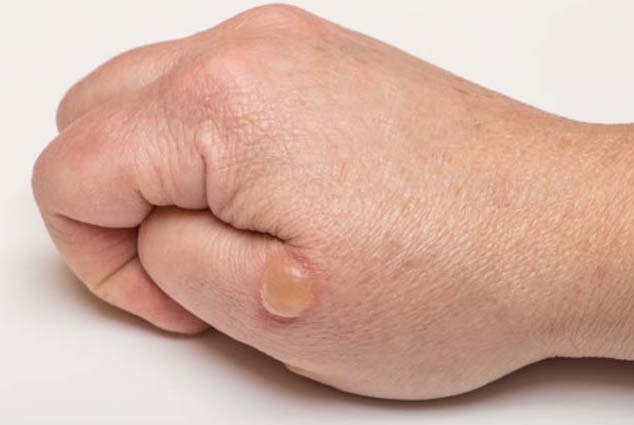Blisters are fluid-filled bumps that look like a bubble on the skin usually occurs on the feet and hands due to friction or pressure. Wearing shoes that doesn’t fit well causes blisters on the feet. Blisters on the hands are often due to heavy manual work. Other types of injuries to the skin that may cause a blister include burns, cold injuries. If redness and swelling occur in the surrounding area of the blister, it is a sign of infection. Infection like chicken-pox, shingles, and cold sores can cause blisters.
Blister Symptoms
- A fluid-filled bump on the skin, particularly the feet.
- The surrounding area may be red and sore.
- Occasionally, the area is hot and very painful.
Home Remedies for Blisters
- Petroleum Jelly: Use petroleum jelly to grease your feet when you are wearing a new pair or if you’re going on a long walk. Apply the petroleum jelly to the areas of your feet that are most likely to get blisters.
- Aloe Vera: Apply the gel from a fresh cut aloe leaf directly to the affected area. If fresh leaves are not available, apply gel or lotion containing aloe vera to treat blister.
- Tea tree oil: Apply a thin layer of tea tree ointment (containing 5 to 10% tea tree oil) to the affected area and cover the area with a clean bandage. Antiseptic properties of tea tree oil will help keep the area infection free while other ingredients in the ointment soothe the skin and keep the bandage from sticking.
- Marigold: Apply an ointment with a 2 to 5% marigold to the affected area. Discontinue the use if there is any allergic reaction.
Do’s for Blisters
- Wear well-fitting shoes. Put padding on areas that are likely to rub and develop blisters.
- Blister area should always be kept clean to prevent infection but it doesn’t have to be bandanged.
- Wear socks made from synthetic blend that include soft fabric.
- Use protective gloves for heavy manual work.
- Include light fresh food such as turnips, celery, spinach, bitter melon and mung beans.
Don’ts for Blisters
- Do not cover the blister, if the blister gets some air, it will help to cure the blister fast.
- Don’t burst a blister or cut the skin over it. The skin protects against infection.
- If the blisters burst, don’t pick at any loose skin around it. Clean, dry, and cover the blister with an adhesive dressing.
- Do not wear cotton socks as they absorb moisture and are usually rough in texture.
- Avoid eating the food which produces heat in the body and may make blisters worse such as ginger, chilies, mustard, and mutton.
See Doctor
- Diabetics should always seek medical attention for blisters.
- If the blisters are not caused by friction or pressure or have any other symptoms.
- A blister becomes red, painful, and swollen, and oozes pus or blood.
- Recurrent blisters or blisters that heal very slowly.
★★ Get our FREE Mobile app, Recommended by 90+ Doctors. Stay Healthy! ★★

Hi , should you pop the blister or because I popped it twice and it grew again is that supposed to happen ??
Regards
Lilly